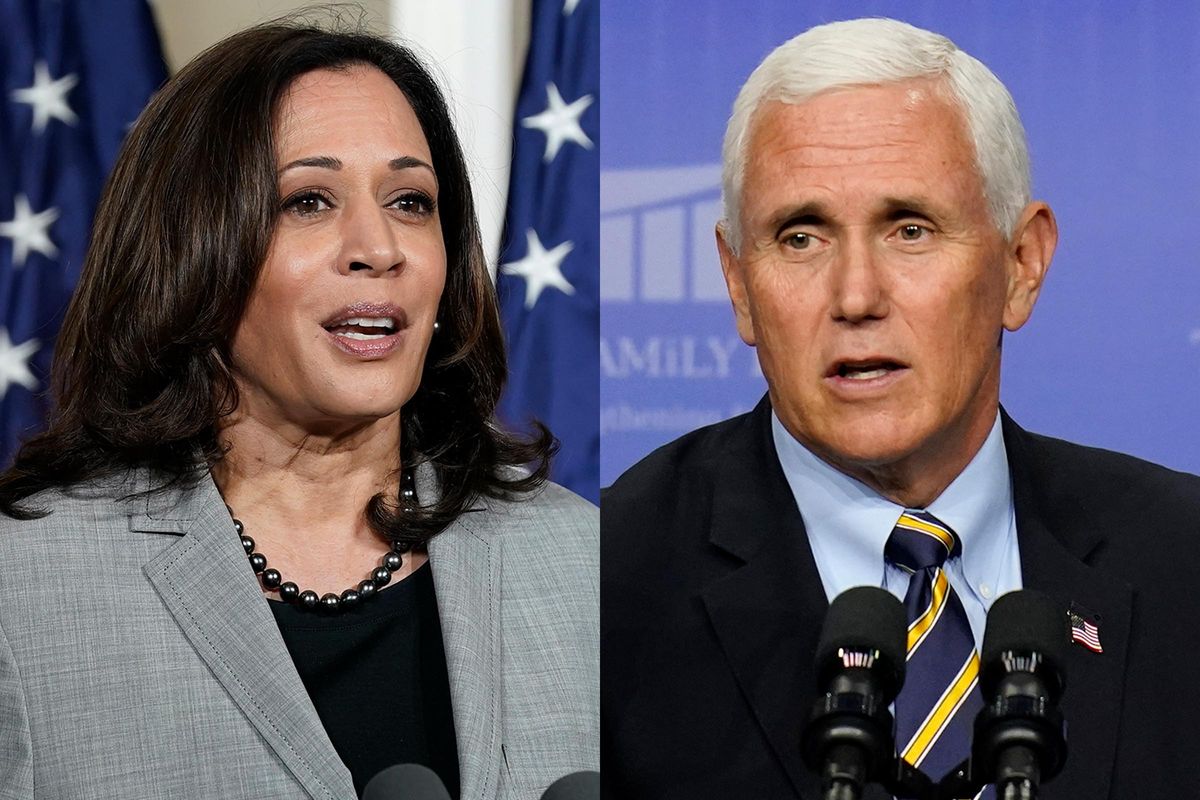PREVIEW: Vice presidential candidates face off in first debate

The first vice presidential debate between Vice President Mike Pence and Sen. Kamala Harris (D-CA) will be held Wednesday night in Salt Lake City with much to discuss between the two.
Both have expressed controversial opinions that will likely be addressed by the moderator and could take on a new sense of significance as the health and age of both presidential candidates — President Donald Trump and former Vice President Joe Biden — become a focal point of voters’ decisions.
The No. 1 issue on the minds of voters is the state of the economy and unemployment rates, as in the last seven months unemployment skyrocketed to 14.7% during the pandemic, according to Trading Economics. Pence is the only candidate who has experience managing a state budget, and Harris, as a senator, has worked with fellow colleagues in Congress to shape how America’s economy should operate.
While Pence was governor of Indiana from 2013 to 2017, the unemployment rate in the state dropped 3.3%. He cut taxes in the state, reducing the rate to 3.3% and creating 147,800 jobs between 2013 and 2016, as reported by ThinkProgress, a former progressive news website.
Harris’ plans for the economy include a rise in taxes for the top 1% and ensuring financial support for those who rent homes. She also plans to initiate the LIFE Act, a program that will provide livable incomes to American families, according to financial resource website The Simple Dollar.
The second most important issue to voters this election cycle is health care, as reported by the Pew Research Center. Harris has voiced her support of a “Medicare for All” program while still allowing Americans to choose to stay with private insurance companies, according to Newsweek.
Pence, however, said in his 2014 Indiana State of the State speech that he believes Medicaid is “broken,” and a system in which the government provides health care for its citizens is fundamentally flawed. This has resulted in cuts to Medicaid funding through the Trump administration.
One of Pence’s most contentious opinions is his stance on marriage equality and LGBTQ+ discrimination laws. In 2015, Pence, governor of Indiana at the time, attempted to block same-sex marriage from being legalized in the state by citing the Religious Freedom Restoration Act, a federal law enacted in 1993 to ensure the protection of religious freedoms, according to the Indiana Democratic Party’s website. The act has allowed businesses and individuals to discriminate against the LGBTQ+ community depending on their religious beliefs.
Harris, on the other hand, has shown compassion for the LGBTQ+ community. She spent her 2004 Valentine’s Day in a San Fransisco courthouse officiating same-sex marriages after the then-mayor allowed marriage licenses to be issued. She also formed the LGBTQ Hate Crimes Unit for the San Francisco Police Department in 2008, according to intersectional news outlet The 19th News.
As hate crimes rise and Trump’s consistent hesitation to condemn white supremacists persist, human rights issues are bound to be a common theme in the questions asked at Wednesday’s debate.
Another focal point for the debate may be Harris’ experience working in the criminal justice department of the California government. Her work as a prosecutor has made her a target for those who advocate for change within our justice system. She has said she is in favor of adding bans on chokeholds, racial profiling and “no-knock” warrants, according to The New York Times.
She has also referred to herself as the “top cop,” making liberal voters skeptical of her ability to effectively alter the American criminal justice system. In 2011, she was accused by activists fighting against police brutality of blatantly avoiding prosecuting cops who have killed civilians while in uniform.
This debate may also address the concerns of Supreme Court nominee Amy Coney Barrett, who has many questioning the security of their reproductive rights. Barrett has expressed pro-life views in the past, but she has denied that her religious background influences her decisions, which Pence has proudly associated with himself.
Abortion is a prime concern for voters. In an August Pew Research Center survey on important issues of the 2020 election, 40% of subjects responded that the topic of abortion was “very important.”
Harris is a supporter of the pro-choice movement, accusing her running mate, Joe Biden, of not being supportive enough of reproductive rights by backing the Hyde Amendment during a Democratic presidential debate in July 2019, which created rollbacks on abortion rights granted to women through Roe v. Wade.
“You made a decision for years to withhold resources [from] poor women to have access to reproductive health care,” Harris said to Biden.
Pence is on the other end of the spectrum when it comes to abortion rights, assuring his supporters that he will fight for the rights of the “unborn.”
“With Democrats standing for late-term abortion and infanticide and a culture of death, I promise you this president, this party and this movement will always stand for the unborn,” Pence said at the Conservative Political Action Conference in 2019.
Both vice presidential candidates hold political beliefs that gain their running mates’ support from their respective party’s more radical base. Pence appeals to religious voters, expressing hardline conservative viewpoints on some of the most important topics of the election. Harris has quite liberal beliefs, especially compared to running mate Biden.
Wednesday’s debate should be an adequate gauge of where the two stand on these issues and more as mail-in ballots are sent out and we inch closer to Election Day.






